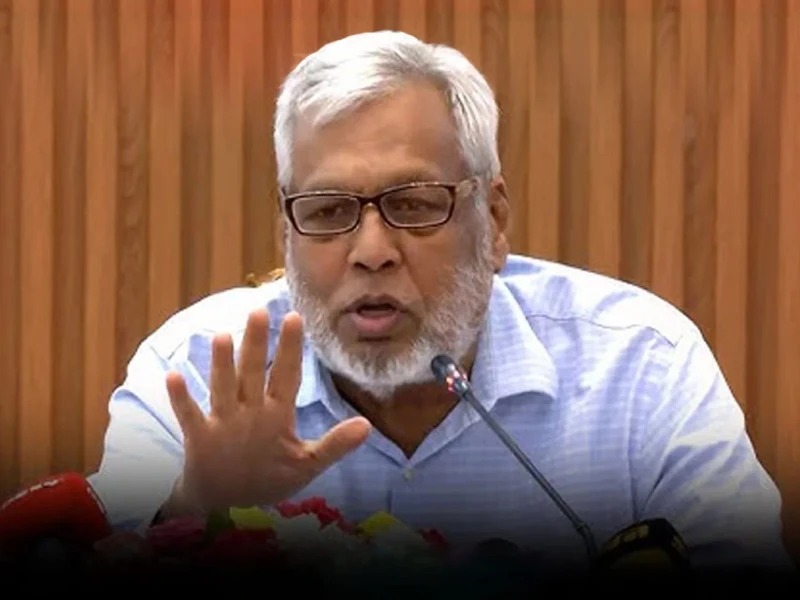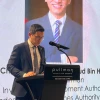Despite repeated government initiatives, Bangladesh’s solar power projects have yet to see the light of day due to multiple challenges and a lack of cooperation from certain power distribution agencies, said Power, Energy and Mineral Resources Adviser Fouzul Kabir Khan on Tuesday.
Speaking at the signing ceremony of a memorandum of understanding (MoU) under the National Rooftop Solar Programme held at Bidyut Bhaban in Dhaka, the adviser said, “The biggest obstacle to implementing solar power projects has been the non-cooperation of several distribution companies. Their resistance has repeatedly stalled progress in this sector.”
Highlighting the worsening energy situation, Fawzul said the country’s natural gas reserves are depleting rapidly, while importing LNG and expanding exploration efforts are proving increasingly difficult.
Every year, we are losing around 200 million cubic feet of gas. On top of that, there are numerous illegal gas connections across the country. Even when we disconnect one, new ones appear elsewhere,” he lamented.
He added that electricity generation using imported gas costs Tk 18–20 per unit, while in the industrial sector, the cost rises to Tk 30–40 per unit.
Despite these challenges, the government has not raised gas or electricity prices over the past year,” he said, stressing that renewable energy is the only sustainable solution to the current energy crisis.
If we can generate 3,000 megawatts of power from rooftop solar panels, it will significantly ease the pressure on other energy sources,” he noted.
The adviser admitted that Bangladesh is lagging behind its regional peers in renewable energy adoption. “Around 75 percent of Sri Lanka’s electricity comes from solar energy, and India produces 30–40 percent of its power from solar. In contrast, Bangladesh generates only 2–3 percent,” he said.
As part of the interim government’s roadmap for sustainable energy, the Power Division on Tuesday signed MoUs with five ministries and divisions to implement the National Rooftop Solar Programme.
The participating entities include the Ministry of Primary and Mass Education, Health Services Division, Secondary and Higher Education Division, Technical and Madrasa Education Division, and the Women and Family Welfare Division.
According to the Power Division, the national rooftop solar initiative was approved on June 29 at the meeting of the Advisory Council. Under the programme, the government aims to generate between 2,000 and 3,000 megawatts of power nationwide through rooftop solar installations.
The programme will be implemented through two key initiatives. Under the first, all government institutions will install rooftop solar panels on their own buildings (excluding rented facilities) using government funds. State-controlled agencies with their own revenues will finance their installations independently while keeping their supervising ministry and the Power Division informed.
Under the second initiative, rooftop solar systems will be installed through combined tenders on government-owned buildings under the Ministry of Primary and Mass Education, the Health Services Division, the Secondary and Higher Education Division, and other interested public institutions.
Each organisation will be able to produce power according to its rooftop capacity. The amount of electricity produced and consumed will be adjusted with the respective distribution company, reducing institutional electricity costs.
The Power Division said that six power distribution companies under its jurisdiction have already invited tenders to install rooftop solar systems in 46,854 institutions under the five ministries, aiming to produce 1,454.61 megawatts of electricity. Implementation is expected to begin before December.
The ministry also informed that low-interest financing for rooftop solar projects will be available through Bangladesh Bank, while several financial institutions will provide funding under various models to support the programme.


 Prev Post :
Prev Post :
